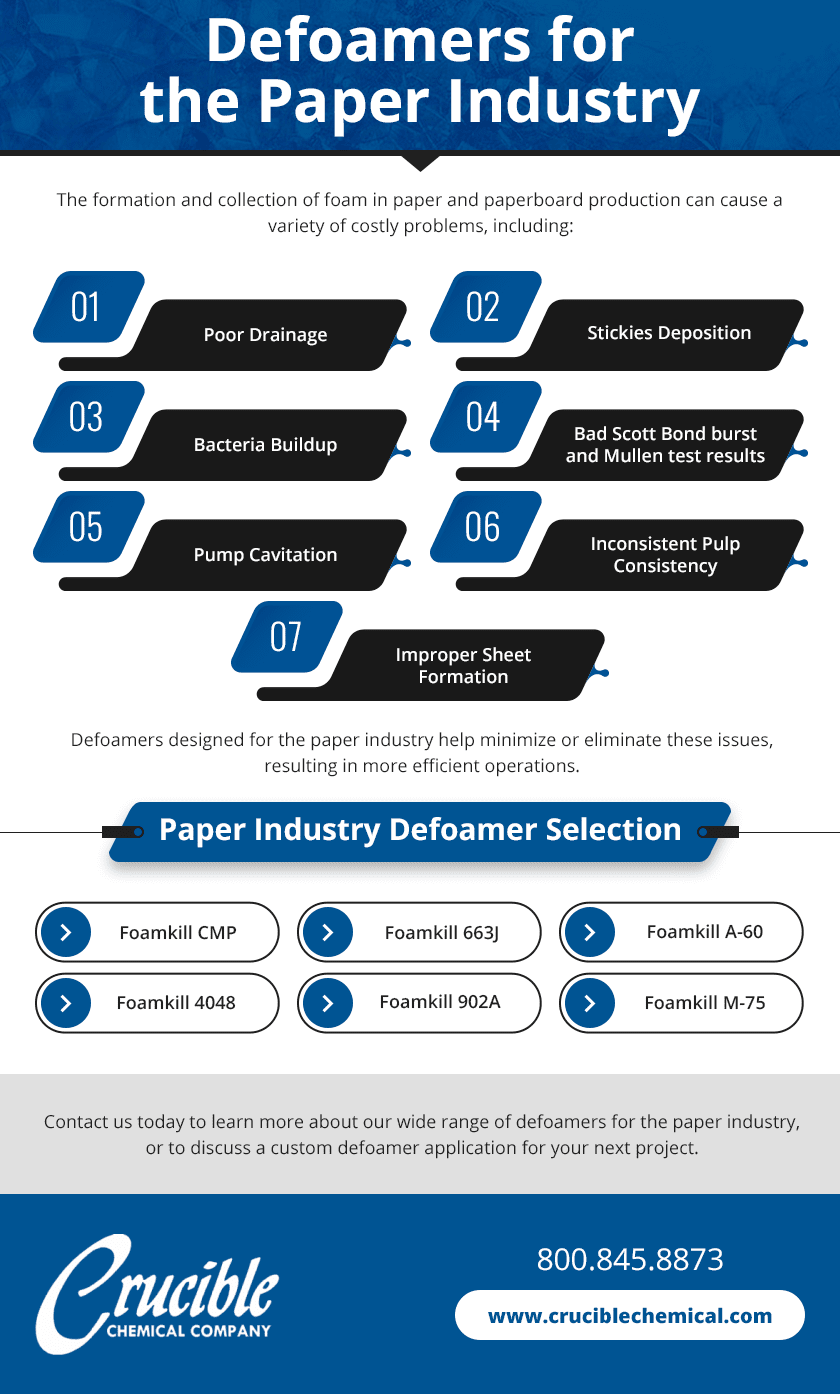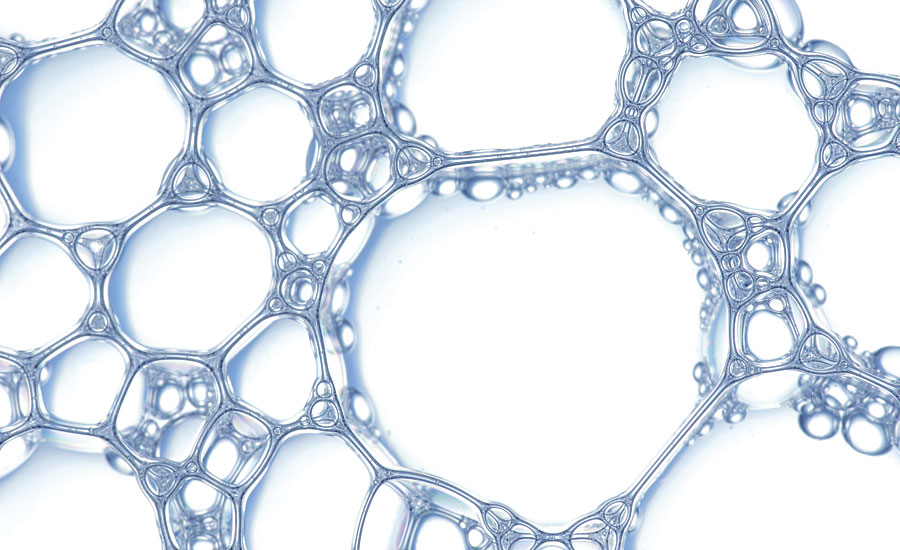How Defoamers Can Save Time and Money in Industrial Production
How Defoamers Can Save Time and Money in Industrial Production
Blog Article
The Role of Defoamers in Enhancing Item Quality and Efficiency
Defoamers offer as essential additives that mitigate this problem, making certain smoother production workflows while improving the visual and functional attributes of the final items. The option of the ideal defoamer can be critical to achieving optimal outcomes, elevating vital inquiries about formulation compatibility and efficiency metrics that merit additional exploration.
Comprehending Defoamers
Recognizing the role of defoamers is important for preserving product quality across different markets. Defoamers are chemical ingredients created to minimize and stop the development of foam in fluid systems, which can adversely impact processes such as blending, loading, and surface area tension. Foaming can lead to inefficiencies, item issues, and endangered aesthetic charm, making defoamers a critical component in producing operations.
In industrial applications, defoamers help to boost product uniformity and stability. The effective usage of defoamers not only ensures smoother manufacturing procedures but also adds to superior item performance.
In addition, the choice and solution of a defoamer should straighten with particular application requirements, such as compatibility with other components, performance under varying temperature level and pH problems, and potential governing constraints. Eventually, recognizing defoamers' features and their significance in numerous solutions is vital for maximizing manufacturing and making certain the best quality final product.
Sorts Of Defoamers
Defoamers can be categorized right into several types based upon their make-up and device of action. The main kinds consist of silicone-based, non-silicone natural, and inorganic defoamers.
Silicone-based defoamers are amongst the most effective, primarily due to their capability to spread out quickly on the liquid surface and interfere with foam development. Their unique chemical structure enables for exceptional security, making them ideal for high-temperature applications and environments with varying pH levels.
Non-silicone organic defoamers, usually composed of fatty acids or natural oils, are valued for their biodegradability and reduced toxicity. These are generally utilized in food and beverage applications where security and environmental effect are paramount.
Inorganic defoamers, that include substances like talc or calcium carbonate, act by boosting the thickness of the fluid, therefore lowering foam security. They are frequently used in industrial processes where compatibility with other products is not a concern.
Each sort of defoamer has unique advantages and limitations, permitting customized options depending on the specific frothing problems come across in different applications. Understanding these distinctions is vital for enhancing performance and achieving wanted product quality.
Applications Throughout Industries
Many markets leverage defoamers to boost product quality and operational efficiency. In the food and drink industry, defoamers are crucial in procedures such as developing and dairy manufacturing to stop foam development, which can bring about inefficiencies and item variance. By controlling foam, producers can make sure better return and a more uniform item.
In the pharmaceutical market, defoamers play an essential function in the solution of fluid medicines, where excessive foam can hamper mixing and precise application. Their usage helps keep the integrity of the formulas and facilitates smoother production procedures.
The paint and coverings sector also counts on defoamers to enhance the performance of products throughout application. By minimizing foam, these ingredients guarantee a smoother finish and enhance the visual top qualities of the final item.

Advantages of Making Use Of Defoamers
While the application of defoamers differs across markets, their advantages consistently boost item high quality and process performance. One considerable benefit is the decrease of foam formation during producing processes, which can or else bring about manufacturing delays and disparities in product top quality. By reducing foam, defoamers make it possible for a smoother circulation of products, facilitating much more efficient procedures and minimizing the possibility of equipment malfunctions.
Additionally, the usage of defoamers can enhance the appearance and appearance of final items. In sectors such as coatings, paints, and food handling, excessive foam can endanger the visual aesthetics and total high quality, while the appropriate defoamer application makes certain an uniform finish and preferable qualities. Defoamers can contribute to set you back financial her comment is here savings by reducing waste throughout production and maximizing the use of raw products.

Choosing the Right Defoamer
Selecting the appropriate defoamer is important for enhancing production processes and ensuring product high quality. The option of defoamer influences not only the performance of foam control but also the overall efficiency features of the end product. Variables to think about include the sort of application, the chemistry of the formula, and the environmental conditions under which the product will certainly be utilized.
Different industries may require specific defoamer kinds, such as silicone-based, organic, or polymeric defoamers. Comprehending the compatibility of the defoamer with the primary active ingredients is essential to stay clear of negative reactions that can endanger product honesty. In addition, the defoamer's efficiency in various temperature levels and pH levels must be evaluated to make certain constant efficiency.
Checking the defoamer in small applications can provide useful insights into its efficiency and viability. Consideration of governing compliance, particularly in food, drugs, and cosmetics, is critical in choosing a defoamer. Ultimately, a detailed assessment of these aspects will certainly result in the choice of a defoamer that not just controls foam successfully yet also improves the high quality and efficiency of the final product.
Final Thought

Finally, defoamers are crucial additives that significantly boost item high quality and efficiency throughout different sectors. By successfully reducing foam formation, these agents not only improve operational efficiency but likewise add to the visual and useful honesty of items. The strategic selection and application of defoamers lead to cost financial savings, optimized resource use, and increased customer satisfaction. Overall, the importance of defoamers in commercial processes can not be overstated, as they play a crucial function in accomplishing consistent and premium outcomes.
Lathering can lead to inefficiencies, item problems, and jeopardized visual charm, making defoamers a vital component in making operations.

Report this page